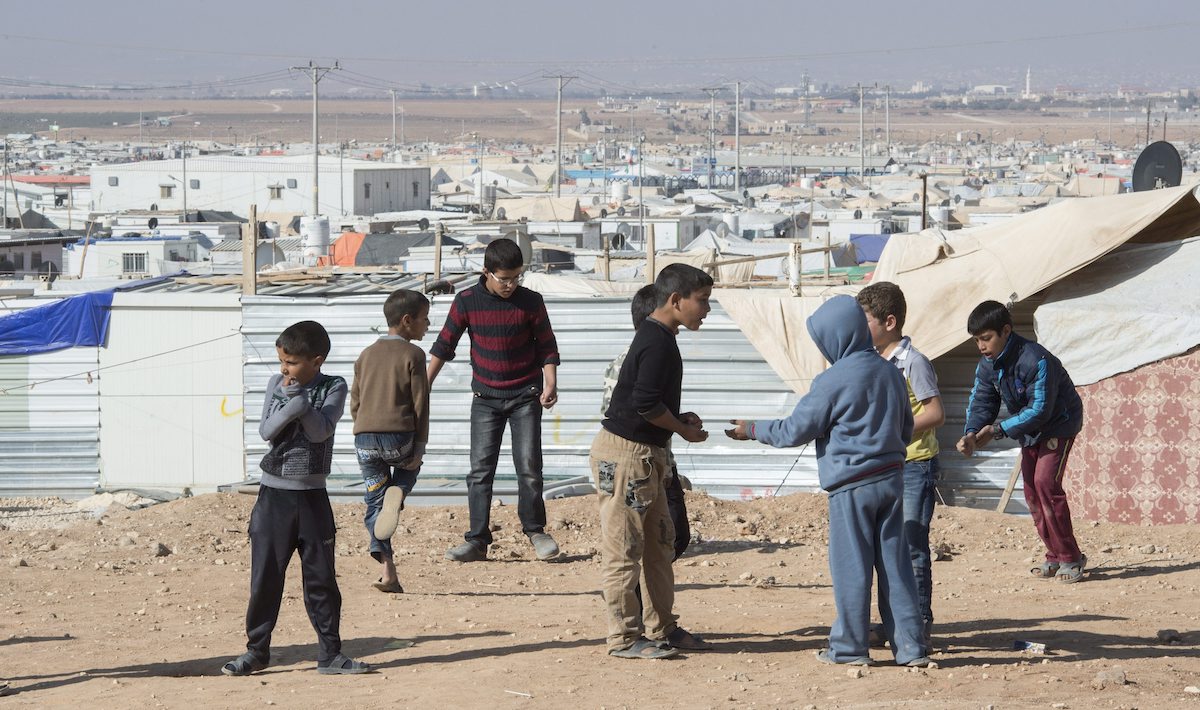As debates about the Syrian refugee crisis bubble and brim, we continue to see a tension among Christians between a longing to help and a desire to protect.
As is readily apparent in BreakPoint’s wonderful symposium on the topic, Christians of goodwill and sincere Biblical belief can and will disagree on the policy particulars of an issue such as this. (See Joe Carter’s explainer for the backstory)
Indeed, although we have heard plenty of rash and strident grandstanding among Christians — not to mention by President Obama and his political opponents — the tension is probably a good place to sit. As Russell Moore reminds us, compassion and security needn’t be pitted against each other.
As I argued last week on the FLOW blog, the Christian heartbeat of hospitality doesn’t necessitate some blind march to self-destruction. At the same time, ours is an ethic that relishes in the risk of sacrifice and is willing to deny our security and comfortability, all that but one might be saved (Luke 15:1-7). Any policy is latent with risk, and in the cost-benefit analyses we’re seeing bandied about, Christians ought to bring inputs uniquely reflective of the Gospel.
Even as we exercise wisdom, prudence, and discernment, we mirror the divine generosity of he who first loved us. That sort of sacrificial posture is bound to impact our rhetoric, and as we continue to analyze the practical concerns, it should tilt our risk assessments in a particular direction:
As Christians, we ought to see the image of God in all people, and demonstrate a love that casts out fear (1 John 4:18). As sojourners and exiles on this earth (1 Pet. 2:11), we should be the first to welcome the stranger, making space for them in our lives and a place for them at our tables. As the rich and well-to-do peering out at the beggars at our gates (Luke 16:19-31), we should be generous in sparing the proper portions of risk, mercy, and grace.
Such an approach needn’t mean that we ignore or bypass political prudence. We have a responsibility to protect our citizens and to consider the practical constraints of a free and orderly society – to maintain order and not abuse the levers of power…What it does mean is that our discussions about solutions ought to reflect a basic motivation of love, mercy, and hospitality. As Christians, we are called to care for the vulnerable, and more often than not, that love is going to come at a cost…Whatever the prudential merits of barricading against desperate refugees, and however we choose to respond, hospitality should remain the shining light of our society, not fear and insulationism.
Every policy bears costs and benefits. Policies are latent with risk, and as Christians, admitting more Syrian refugees is a risk we should be willing to seriously consider. Because despite those risks, the transformative power of a love that sacrifices for others is bound to bear fruit – spiritually, culturally, civilizationally, and otherwise. Even as we try our best to mitigate negative outcomes, we must remember for what and whom Christ opened his door, and how the resulting liberty ought to be spread here on earth.
“Justice requires love,” writes Evan Koons in Episode 4 of FLOW, “because you won’t have justice unless you remember the image of God in each person – unless you remember each person’s dignity as a glorious, creative, capable gift to the world, unless you are willing to give yourself away to keep that memory alive.”
As Christians, the position of our hearts ought to turn the aim of our policymaking toward the other, pairing a wisdom to mitigate risks with a boldness and willingness to err on the side of sacrifice. As it does, I trust we’ll see less strident opposition from both sides, neither barricading against any and all new entries, nor evading or dismissing security concerns for cheap political and rhetorical points.
As we join together on those key priorities, Christians can discuss and disagree together, praying that our leaders come to a solution that welcomes the broken even as we protect our society from similar destruction.

